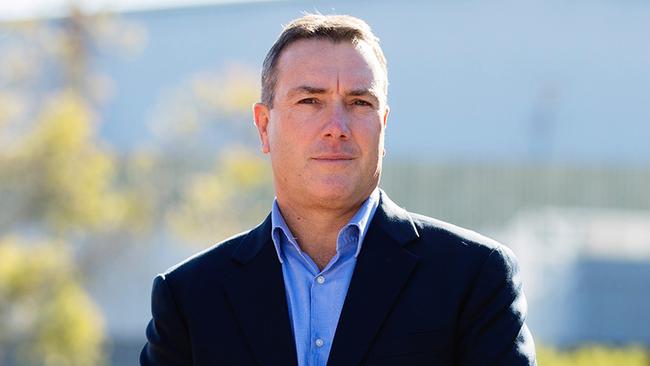Renewables rush a risk to industry, warns Tomago
Australia’s biggest aluminium producer has warned that renewables are unable to deliver reliable and affordable power.

Australia’s biggest aluminium producer has warned that the nation’s industrial base will be at risk unless Malcolm Turnbull’s signature energy policy guarantees 24/7 power at internationally competitive prices, declaring that renewables are unable to deliver reliable and affordable power to energy-intensive users.
Tomago chief executive Matt Howell yesterday expressed concern that the nation’s baseload capacity had been “hollowed out”, with coal generation replaced by unreliable energy sources that could not be economically “firmed” with gas or battery storage.
The NSW-based company, which produces 593,000 tonnes of aluminium a year, last week experienced a high-risk shutdown of three potlines because of a sharp fall in energy availability.
Mr Howell told The Australian the national energy guarantee must reverse the threat to baseload power.
There are concerns inside the Coalition partyroom that the energy plan will freeze out coal-fired power.
“We cannot, in our approach to this transition, lose sight of the fact that there are 24/7 baseload energy customers,” Mr Howell said. “And we have to make sure our grid can still provide energy to those customers at competitive prices, irrespective of the weather.”
Manufacturing Australia chief executive Ben Eade, who represents some of the nation’s biggest employers including Tomago, BlueScope Steel, CSR, Dulux Group, Brickworks, Adelaide Brighton, Cement Australia and Rheem, said the NEG should “aim to reduce the shock and risk” to the nation’s biggest power consumers.
Mr Eade backed the government’s work to address the “trilemma” of reliability, price and carbon emissions through the NEG, but added: “When you are a large trade-exposed industry, you need to be able to produce product that is competitive with the price of imports. So there is a sensitivity to anything that moves your key input cost higher than that of your trade competitor.”
Mr Howell, whose company directly employs 1100 workers, said renewables were threatening the business model of conventional thermal generation, without an affordable option to “firm” the unreliable power sources for big users on overcast or windless days. He said battery storage was not viable for big energy users, noting that South Australia’s Tesla battery “would power us for about eight minutes”. The cost of energy from gas-fired peaking plants was also “way out of the ballpark”.
“So our question is: in the absence of wind and solar and commercial reliable storage for energy-intensive industries, where does the energy come from for industries such as ours that need it every minute of the day? Where does it come from when the intermittent generators are simply not providing?”
The Tomago plant, in the Hunter region, is Australia’s biggest single-point energy user. It has a long-term energy deal with AGL to supply the majority of the plant’s 970MW load until 2028.
The smelter was forced to power down a potline on Tuesday last week, and two more on Thursday, when about 3800MW of coal-fired generation capacity was unavailable through planned and unplanned maintenance, coinciding with low solar generation and higher than usual demand from domestic energy users.
Any shutdown of an aluminium smelter was risky, while unplanned outages could be catastrophic, Mr Howell said.
“Something had to give, and that was us,” he said. “Now that is no way to run an energy system.”
He warned that AGL’s scheduled closure of its Liddell power plant in 2022 would leave a shortfall in the volume of power available to the grid. “The concern that we have is the energy volume from Liddell in megawatt hours is not being replaced by an equal volume of energy in renewables,” he said.
Resources Minister Matt Canavan, a supporter of coal-fired power plants, said coal remained the cheapest and most affordable option to deliver baseload power.
“What we need is an approach that treats all energy sources equally, and then what the market will then deliver is the cheapest power to meet those reliability needs,” Senator Canavan said.
“Now whether that is coal, solar gas or whatever, that will depend on the technology. But right now coal is the one that is the cheapest and most affordable, and that’s why we need to have a system that allows it to at least have a chance.”
The central Queensland senator said if Labor won the election and introduced a 45 per cent cut to carbon emissions, coal would be unable to compete. Energy Minister Josh Frydenberg, the architect of the NEG, would not comment yesterday on concerns raised by major manufacturers.


